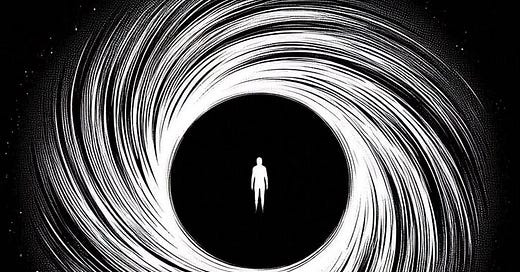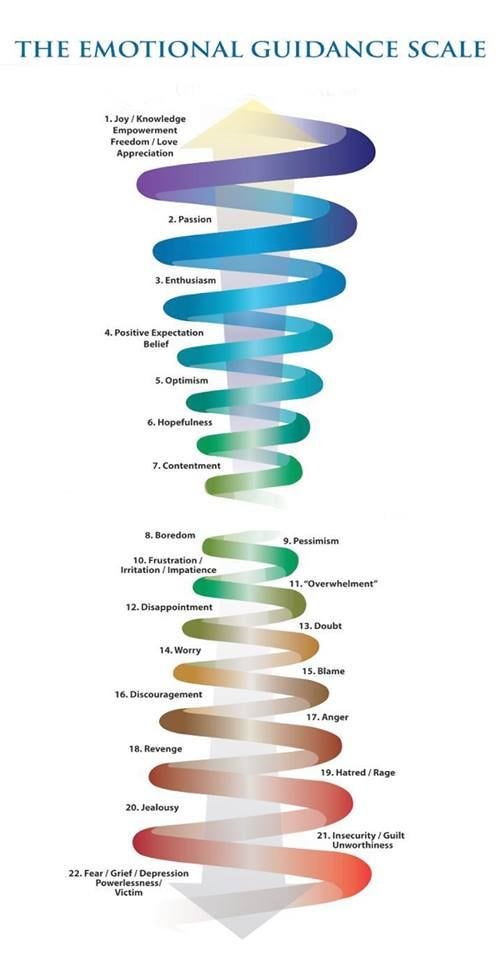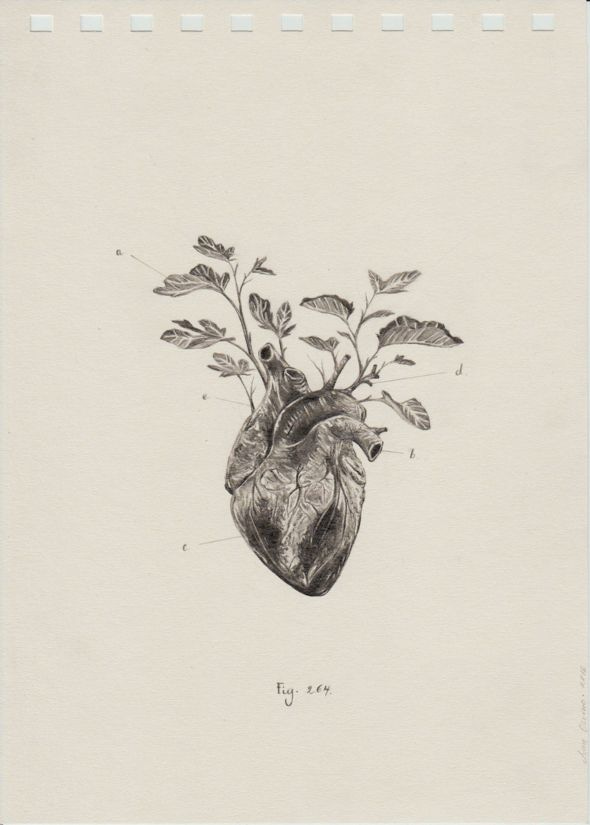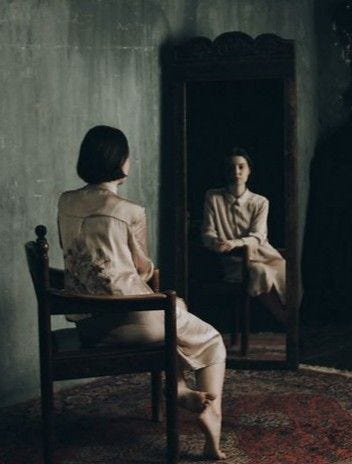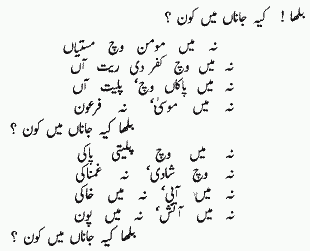The Eye ( Baseerah)
In my last three posts, I explored how the Quran speaks about eye and light — specifically the three types of sight: Ain, Nazar, and Basr. The Quran places great importance on these gifts, mentioning repeatedly that people were given sight, hearing, and hearts — yet still, many do not show gratitude.
“And Allah brought you forth from the wombs of your mothers while you knew nothing; and He gave you hearing, sight, and hearts, that you might give thanks.”
(Quran 16:78)
Witnessing Truth
Those who are blessed with knowledge ultimately recognize the truth, but true acceptance comes only when a person sees it with their own eyes — not just intellectually but experientially.
We see a beautiful example of this in the story of Hazrat Ibrahim (A.S.). When he asked Allah how He would bring the dead back to life, Allah responded:
"Ibrahim, do you not believe?"
Ibrahim (A.S.) replied,
"I believe, but I ask so that my heart may be satisfied." (Quran 2:260)
Allah did not scold or hesitate at Ibrahim’s request. Instead, He accepted it and instructed him: take some pigeons, keep them with you until they become attached to you, then sacrifice them, place their parts on different hills, and then call them — and they would come flying back to him, alive.
Ibrahim (A.S.) obeyed, and witnessed with his own eyes exactly what Allah had promised.
This story shows us something profound: Ibrahim (A.S.), despite already possessing deep knowledge, sought witnessing. He used his intellect — his Nazar — not to blindly follow the material world, but to question it, to pierce through appearances in search of the true Reality.
He understood that the intellect (Nazar) is meant to recognize the blessings, signs, and warnings from Allah — not to deceive oneself, not to neglect the truth, and not to waste life.
The Quran describes different levels of Yaqeen (certainty). The first stage is acceptance in the heart (Ilm al-Yaqeen — knowledge of certainty). But yaqeen progresses through stages:
Ilm al-Yaqeen — knowledge of certainty
Ain al-Yaqeen — seeing the truth with one's own eyes
Haq al-Yaqeen — experiencing the truth directly
It’s important to understand: I am not saying that Ain and Nazar are useless and only Baseerah (inner sight) matters.
In reality, you need both Ain and Nazar to move toward Baseerah.
Without Ain, you can still have Nazar — but without Nazar, only a very rare few are granted Basr (true insight).
At Haq al-Yaqeen, you recognize that whatever is within you or outside of you is a manifestation of Haq.
The Haq — the Ultimate Truth — is the Self that permeates all existence.
Even in the Arabic language, the word Haq (حق) is made of the letters Ha (ح) and Qaaf (ق) — each with deep symbolic meaning, hinting at the hidden layers of creation and Creator.
(Soon, I’ll be starting a series exploring the secrets of the Arabic letters — the Huroof.)
Well, at this point, I would like to add that the one true Anāh — or Ego, or Self — belongs to Allah. We, as humans, have been the egos or the selves given the ability to think and create our own realities. We exist because the One True Self is observing us — without which, we can't exist. I hope you've heard about the observer and observed effect. Well, Allah thought of us — or simply put, His eye is observing us (of course, not a literal eye) — but since He’s letting this world be, it is.
“He is with you wherever you are…” [57:4]
“And We are closer to him than [his] jugular vein.” [Qur’an 50:16]
“Does he not know that Allah sees?” [Qur’an 96:14]
We are all different egos, thinking of ourselves as minion gods, but in reality, we aren’t God. We’ve only been given a godly power to manifest whatever we want — like God Himself — but it comes with certain limitations too.
The Light That Enters Heart
Allow me to unfold the deeper meaning of Noor — the Divine Light — and its different types.
We will explore how and when Noor reaches the heart, and how to recognize it.
Brace yourself for the final part of this series, where you’ll finally be able to differentiate between false illumination and true enlightenment.
Qalb And Fuwad
In Arabic, the heart is described by two different words:
Qalb (قلب) — meaning that which turns and changes.
Fuwad (فؤاد) — meaning the core of burning emotions, the seat of passionate feelings.
The Qalb is constantly turning, shifting between states. In reality, what’s happening is that the heart is simply beating and a beat is just another word for vibration at a certain frequency. For example, if my BPM (beats per minute) is 72, that means my heart beats 1.2 times per second. Now, if I feel fear, my heart rate increases — it might jump to 100 or even 150 BPM. The heart works independently, and whenever something triggers us whether from our imagination or the outside world — the BPM changes. This is where the concept of Qalb comes in; it's the constantly changing state of the heart. These shifts in heartbeat influence the release of hormones in the blood, creating emotional states like anger, fear, or happiness.
And here enters the concept of Fuwad. Fuwad is basically the impact of the BPM — you can think of it as the scale or temperature of emotions, ranging from negative to positive. Take anger, for example: anger itself isn’t bad you might get angry at injustice in society, and that’s a natural reaction. But how we express this emotion is where we often fall short. Fuwad, then, represents the intensity, the burning point of these emotions.
“And the heart (fu'ād) of the mother of Musa became empty. She was about to disclose [his case], had We not strengthened her heart (qalb) so that she would be of the believers.”
— Surah Al-Qasas (28:10)
The fu’ād of Musa’s mother didn’t just ‘become empty’ — it was emotionally disoriented, stripped of all composure, flooded with grief. And then,
The Fuwad represents the burning center of the human — where desire, fear, and deep emotions are felt. And then Allah tightened her Qalb — because the Qalb, that piece of flesh in our chest, is not just symbolic but literally shaped like a chestahedron. It's as if Allah sealed or reinforced her heart’s frequency, transforming her anxious, scattered emotions (fu’ād) into calm and trust. The change in Qalb altered the emotional state entirely.
Science tells us that the heart is much more than a blood-pumping machine.
It is an electric generator, producing the strongest electromagnetic field in the human body — stronger than even the brain. This field extends several feet around us, creating an aura or energy field into which certain energies can enter — and others cannot. It connects us not only with people around us but with the cosmos above, forming a bridge between the seen and unseen realms.
Heart As A Seed
The heart acts as the seed and from it, branches grow upwards. The mind, or intellect, is like those branches, reaching out to gather the fruits of knowledge. But just as a tree without strong roots cannot bear good fruit, knowledge without a sound heart can become deceptive. The fruit of knowledge or in simpler terms, the "third eye" that many seek, is ripened by the energy stored in the seed, which is the heart. This is why even those with immense religious devotion, high IQs, or deep esoteric insight can still be led astray not by others, but by themselves.
As the Qur'an says: "They seek to deceive Allah and those who believe, but they deceive none but themselves, though they do not perceive." (Surah Al-Baqarah 2:9).
The health of the seed determines the strength of the tree; likewise, the state of the heart determines the state of the entire being.
As Prophet Muhammad (ﷺ) said: "Truly in the body, there is a piece of flesh which, if it is sound, the whole body is sound, and if it is corrupted, the whole body is corrupted — truly, it is the heart." (Sahih al-Bukhari & Muslim)
The Quran gives a powerful parable:
"Have you not considered how Allah presents an example? A good word is like a good tree, whose root is firmly fixed and its branches [high] in the sky. It produces its fruit all the time, by permission of its Lord."
(Quran 14:24-25)
And in contrast:
"And the example of a bad word is like a bad tree, uprooted from the surface of the earth, having no stability."
(Quran 14:26)
The good Kalima (the truth, the light) is rooted deep and stretches upward — connecting the earth and the heavens.
The bad Kalima (falsehood, deception) is shallow — neither nourishing nor stable.
Read more about this here.
Shattering Of Ego
Fancient civilizations to today, I often ask: why is it that those who claim to have an “open eye” or the so-called third eye those who perceive beyond the ordinary — often fail to witness the true glory of God? Instead, many begin to believe that they are god, or consider themselves superior to others. But they forget that, it’s the heart that must awaken first otherwise, perception becomes pride. The truth is, knowledge alone can only take you so far. Real transformation comes when the idea of “the self” — the ego is shattered. And it shatters the moment divine light — Noor — enters your seed, your heart.
When Noor enters, it’s like dawn after a long night. Just as water purifies the body, Noor purifies the soul — gradually washing away the spiritual and emotional dirt we collect in this world. Noor is not limited to one form. It can come through divine books like the Torah, Bible, Quran, and Gita; through prophets, sages, saints, children, or even the simplest moments in nature. Anything that brings you closer to God , that breaks your illusion of separation is Noor.
But among all sources, Allah has specially purified a lineage — the Ahl al-Bayt. As mentioned in the Qur’an:
“Indeed, Allah intends only to remove from you impurity, O people of the [Prophet’s] household, and to purify you completely.”
(Surah Al-Ahzab 33:33)
They are not the owners of the Noor — for Noor belongs only to Allah — but they are the inheritors and carriers of it, passed down from the heart of Rasulullah (PBUH). They serve as vessels, chosen to reflect, transmit, and continue the light. But ultimately, guidance belongs to Allah alone, and He has created different means to reach different hearts. Noor is eternal, living, and limitless — it is the life itself, and when it enters, it awakens the soul to recognize that all things return to Him.
Have I talked about how we will be carrying our own light at the day of judgement? Well, read this ayah:
"On the Day you will see the believing men and the believing women, their light running before them and on their right, [it will be said], 'Glad tidings for you this Day of gardens beneath which rivers flow, to abide therein forever.' That is the great attainment."
(Surah Al-Hadid, 57:12)
Understand that Allah has the power to guide whom He wills. Those who are guided are on the straight path in this world, and in the Hereafter, they will walk straight upon the Pul-e-Sirat with the help of the light that was granted to them in this world as guidance. In our material world, we cannot see the Noor, the guidance of Allah, in a literal sense as a light in front of us, but after death, we will. On the Day of Judgment, we will walk in light that will be emitted from ourselves.
"Is one who walks fallen on his face better guided, or one who walks upright on a straight path?"
أَفَمَن يَمْشِي مُكِبًّا عَلَىٰ وَجْهِهِ أَهْدَىٰ أَمَّن يَمْشِي سَوِيًّا عَلَىٰ صِرَاطٍ مُّسْتَقِيمٍ
(Surah Al-Mulk, 67:22)
The Prophet ﷺ himself asked for Noor — not just as light to see with, but as a complete spiritual covering.
I’ll soon be discussing in another article of why people take things symbolically whatever is told in bible, torah or Quran and totally abandons the fact that this actually has happened in history but still ask them do they believe in As above so below? they will say yes yes we do.
Blindness
What about those who weren’t guided in this world? They will not have light! AH, just remember more ayahs on this…
It is not the eyes that are blind, but the hearts which are in the breasts that are blind."— (Surah Al-Hajj 22:46)
وَمَن كَانَ فِى هَـٰذِهِۦٓ أَعْمَىٰ فَهُوَ فِى ٱلْـَٔاخِرَةِ أَعْمَىٰ وَأَضَلُّ سَبِيلًۭا ٧٢
But whoever is blind in this [life] will be blind in the Hereafter and even more astray from the path.”
— (Qur’an 17:72)
Of course, the ones with bodily blindness are not referred to here. That blindness was from Allah as a test or trial, and He will surely compensate for that in the Hereafter, and it’s your right to ask for compensation. But what is being referred to here is the blindness of seeing the truth—the blindness of nazar and basr. Those who could not ponder over the sky and see that it is perfected, and those who could not reflect on their birth and how they were raised, questioning Allah as if Allah was the one plotting against them, when it was in fact Satan.
Lastly, I would like to wind up the whole “decoding the eye” series on a special note. And it’s very intense for me to write this.
From ain to basr, we have been 3 eyes and different lights to witness the sign of our God- Allah alone. You know we see everything from beautiful to ugly, devasting to fascinating but we miss out on one thing and that one thing is most important. We dont know , we havent seen and talk to our God. Even if u think you dreamt of the God you believe in, we have no idea how He look, His voice, His Eyes!
Yes, i have seen His brilliance, His artistic, strategic, and every other quality in the material world but what about Him? We are content without knowing our origin? How are we so relaxed and feel our little life to be real?
You know what’s the truth? You havent seen anything if you havent seen Him, You havent learned anything if you havent learned about Him, you havent feel what love is if you havent feel His Love for entire infinite realms.


